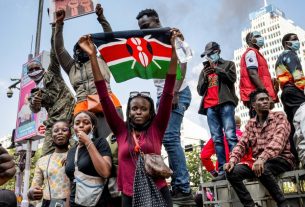Three years ago, a series of protests in China has sparked a political awakening among Chinese youth, with many questioning Chinese leader Xi Jinping’s authoritarian policies and practices and notably confronting the government’s abuses against Tibetans and Uyghurs.
In response to a deadly apartment fire in Urumqi, Xinjiang, blamed on harsh Covid-19 restrictions, thousands in Shanghai, Beijing, and other cities took to the streets in November 2022. They defied Xi’s draconian “Zero-Covid” policy, chanting “We want human rights” and “Down with the Communist Party.” As an act of wordless resistance and opposition to censorship, demonstrators held up blank sheets of paper, thus becoming known as the White Paper protests, China’s largest nationwide demonstrations since Tiananmen in 1989.
Although the government was already easing its zero-Covid policy, the protests accelerated its end.
The authorities arrested a number of protesters. Most were soon released, but a young Uyghur student, Kamile Wayit, was sentenced to three years in prison for “promoting extremism” after sharing a video of the protests online. A filmmaker, Chen Pinlin (陈品霖), was sentenced to three-and-a-half years for his documentary, “Urumqi Middle Road.”
The political awakening has also been visible among young Chinese diaspora: in New York City, for example, last year’s White Paper anniversary featured “East Turkestan” flags, which represent a Uyghur independence movement, along with Palestinian flags, reflecting a desire to be part of a broader movement.
These current demonstrations contrast sharply with the nationalism of past protests in China, which defended the government’s abuses against Tibetans during the 2008 Beijing Olympics, and supported brands linked to Uyghur forced labor in 2021.
Some diaspora youths have become organized. Chinese Youth Stand for Tibet aims to promote Tibetan culture within Chinese-speaking communities and address ethnic conflicts and prejudice, including “majority ethnic Han chauvinism.” The authorities have noticed. In July, they arrested Tara Zhang Yadi, a France-based student activist and White Paper participant who had returned to China, for her advocacy of Tibetan rights.
The White Paper protests ignited a generation imagining freedom, respect for basic rights, and solidarity across borders that the arrest and detention of young activists are unlikely to extinguish.



